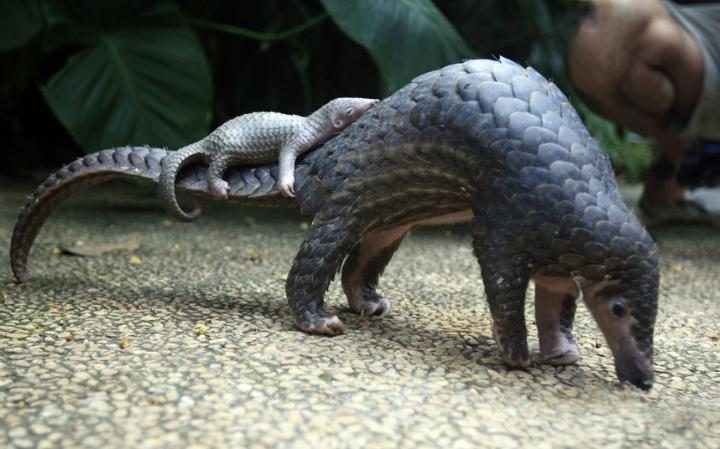Pangolins are widely considered the world’s most trafficked mammals, accounting for nearly 20% of all illegal wildlife trade. These shy, nocturnal creatures are hunted extensively in West and Central Africa for their meat and scales, which are valued in traditional medicine in Asia.

While pangolins are consumed as bush-meat across Nigeria and other African nations, the primary driver of trafficking is demand for their scales from China and Vietnam, where pangolin scales are falsely believed to treat a variety of conditions including skin diseases and rheumatism.
However, the relentless poaching of pangolins is pushing them toward extinction, raising urgent concerns about conservation and economic losses. Nigeria has become a key transit hub for African pangolin scales, with large shipments smuggled from across the continent and exported to Asia.
Reports by Mongabay, a conservation news site, and BBC indicate that seizures in Nigeria have been among the largest globally, highlighting the country’s central role in the illegal trade. In a significant move against trafficking, Nigeria publicly incinerated $1.4 million (£1.2 million) worth of seized pangolin scales in 2023, marking its first symbolic destruction of wildlife contraband. This act was intended to send a strong message about the country’s commitment to combating
Poaching and illegal trade
According to Dr. Iziaq Adekunle, the former Minister of State for Environment, the destruction of these seized pangolin scales was a symbolic step toward protecting Nigeria’s wildlife.
However, while public demonstrations of commitment like the destruction of the seized stockpile are important, experts argue that stronger law enforcement and harsher penalties are needed to dismantle the multi-billion-dollar wildlife trafficking network operating within the country.
According to the UNODC, Africa is home to four species of pangolins, including the giant pangolin, and the white-bellied or tree pangolin – mostly found in Nigeria. However, due to extensive poaching, their population has plummeted, with Nigeria now primarily acting as a transit hub for scales sourced from across Africa.
Pangolin poaching has significant economic implications beyond biodiversity Ioss. If protected, Nigeria’s wildlife, including pangolins, could contribute substantially to ecotourism, an industry worth over $10 billion annually across Africa.
Countries like Kenya and Rwanda have successfully monetised wildlife conservation, yet Nigeria remains absent from this lucrative sector due to weak wildlife laws and rampant trafficking.
On the black market, pangolin scales fetch around $3,500 per kilogramme, fueling an illegal trade that benefits a few, while depriving the nation of sustainable economic opportunities. If trafficking continues at its current rate, Nigeria could lose millions in potential conservation revenue, worsening rural poverty and ecological degradation.
As Nigeria observes the 2025 World Pangolin Day on Saturday, February 15, awareness must translate into action. Strengthening the wildlife laws by passing the bill currently at the House of Assembly – headed for third reading, increasing law enforcement capacity, and promoting ecotourism are essential steps to reversing the pangolin population decline. Without urgent intervention, Nigeria risks not only losing a keystone species but also forfeiting the economic benefits of sustainable wildlife conservation.
In order to reverse the pangolin population decline in Nigeria, urgent action must be taken. This includes strengthening wildlife laws by passing the bill currently at the House of Assembly, increasing law enforcement capacity, and promoting ecotourism. As Nigeria observes World Pangolin Day 2025, it is essential to translate awareness into action to prevent the loss of this keystone species and the economic benefits of sustainable wildlife conservation.
By Ajibola Adedoye
This article was funded by a grant from the United States Department of State (via Wild Africa). The opinions, findings and conclusions stated herein are those of the author(s), and do not necessarily reflect those of the United States Department of State
